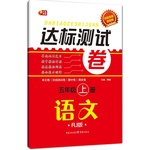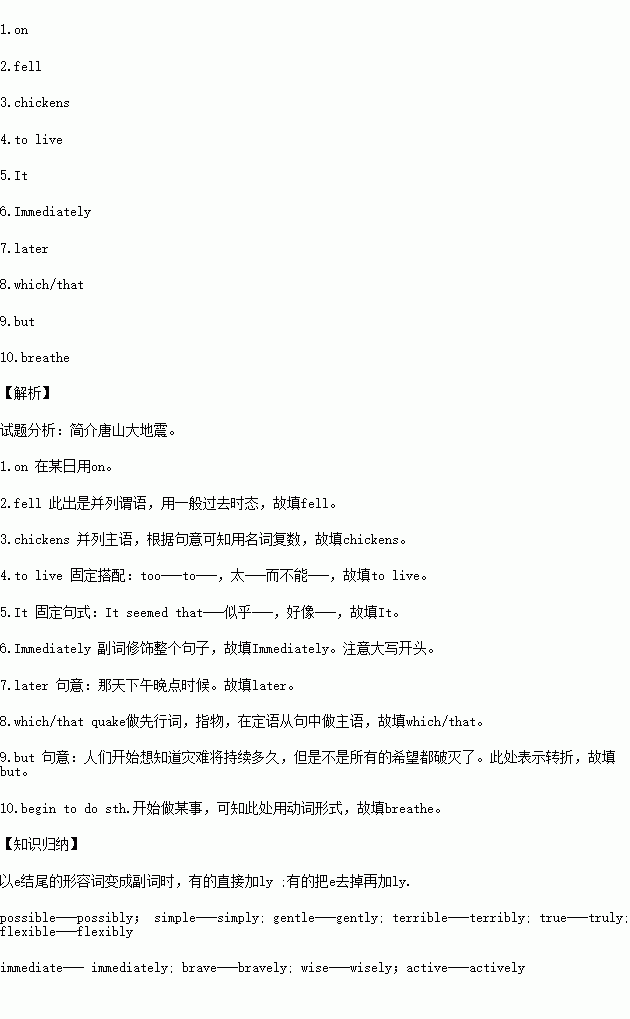题目内容
阅读下面材料,在空白处填入适当的内容(1个单词)或括号内单词的正确形式。
There were some strange things happening in Tangshan 1. July 28, 1976. For three days, water in the wells rose and 2. (fall). The wells had deep cracks and a smelly gas came out of them. Pigs, 3. (chicken) and even mice became too nervous 4. (live) as usual. At 3:42 am, everything began to shake. 5. seemed that the world was at an end. One-third of the nation felt it.
A terribly huge crack cut across the city. 6. (immediate) the city lay in ruins. Two-thirds of the people died or were injured. Then 7. (late) that afternoon, another big quake 8. was almost as strong as the first one shook Tangshan. People began to wonder how long the disaster would last, 9. not all hope was lost. Soldiers came to help those survivors. Slowly, the city began to 10. (breath) again.
 芒果教辅达标测试卷系列答案
芒果教辅达标测试卷系列答案
